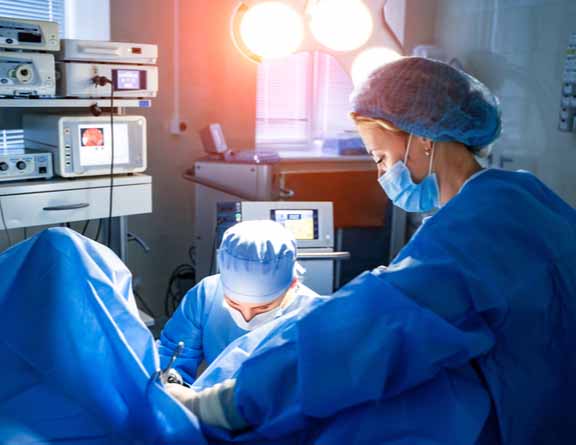
Warangal
USFDA Approved Procedures
No Cuts. No Wounds. Painless*.
Insurance Paperwork Support
1 Day Procedure
Egg freezing is an advanced scientific process that involves freezing one or more unfertilized eggs when they are young and healthy, to help a woman achieve pregnancy later. Egg freezing is also known as mature oocyte cryopreservation. It involves the hormonal stimulation of the ovaries, followed by transvaginal retrieval and subsequent freezing and storage of a woman's viable eggs.
During the procedure, medications are used to stimulate eggs to grow. Those eggs are then harvested from the ovaries and frozen for storage. At a later date, the eggs can be thawed and combined with sperm to create an embryo. The embryo can then be implanted into the uterus during an embryo transfer cycle.
The first human baby born from frozen eggs was reported in 1986. The first baby from frozen eggs in India was born to a 37-year-old woman from Arakkonam in the Vellore district.


Treatment
Before egg freezing, fertility specialists suggest a few diagnostic tests to get a reliable indication of ovarian reserve. Some common diagnostic tests performed before egg freezing are mentioned below:
Blood tests: It is done on the second or third day of the period to get information about the egg supply. Blood tests help in indicating the level of different hormones such as, Anti-Mullerian Hormone (AMH) and Follicle Stimulating Hormone (FSH). A high level of Anti-Mullerian Hormone (AMH) indicates a good quantity of eggs, while a low level of Follicle Stimulating Hormone (FSH) indicates a low quantity of eggs.
Transvaginal ultrasound: This test is performed to check the functioning of the uterus and the ovaries. The ultrasound helps in counting the number of egg follicles or the structures that hold individual eggs in your ovaries. This number is known as your antral follicle count. The higher the antral follicle count, the higher the ovarian reserve.
Before the egg freezing procedure, the fertility specialist performs a brief assessment of the ovarian reserve to check the number of oocytes, and ensure that a woman has enough oocytes to freeze her eggs. Fertility specialists suggest blood tests and a pelvic ultrasound to check the number of oocytes and levels of different hormones. After analyzing the test results, the doctor decides whether to proceed with egg freezing, or if the woman requires some medication.
After that, the fertility specialist conducts ovarian stimulation, similar to IVF. In this procedure, hormonal medications are injected into the ovaries. The fertility specialist then monitors the growth of ovarian follicles and when enough follicles develop, they retrieve the eggs through vaginal aspiration under sedation.
After the egg retrieval, the fertility specialist examines the eggs under a microscope and identifies the mature ones for cryopreservation in the lab. The procedure used to preserve the eggs in a rapid cooling of a liquid nitrogen medium is known as Vitrification.
Best IVF Centre in India with Highest Success Rate
We provide a free home sample collection facility to save patients from the hassle of commuting to the clinic/hospital. Our executives collect the samples for IVF from the patient’s doorstep, and the samples are preserved and deposited for testing/treatment with care.
We ensure 100% confidentiality of the patients throughout the treatment process. All the treatment details and documentation are kept secure, and no information, under any circumstance, is leaked to an outside party.
According to the reports of USC fertility, frozen eggs can be stored for longer than 14 years. There is no evidence that states any birth defects or genetic abnormalities caused by eggs that have been kept preserved for 14 years.
It depends on three primary factors:
However, to ensure the success of your future pregnancy doctor encourages you to freeze 30-35 eggs. However, the recommendation changes with increasing age. As women get older, they may need to freeze more eggs, as the chance of an egg causing a pregnancy generally declines with advancing age.
You must consider the following factors before egg freezing:
Studies suggest that the ideal age for egg freezing is under 35. Women who freeze their eggs before they turn 35 have a better chance of a successful pregnancy as compared to those who freeze their eggs after that.
Women who freeze 10-20 eggs under 35 years of age have the highest number of births per treatment cycle, according to HFEA data. This rate declines with age.
Pristyn Care is a highly trusted and established fertility clinic in Warangal. We provide advanced fertility treatments, including egg freezing, and ensure successful outcomes. Egg freezing is an advanced scientific procedure to preserve women’s reproductive potential. Our treatments help women get pregnant later in life without much complications.
Egg freezing is a very sensitive treatment procedure, hence choosing the right fertility specialist for egg freezing is crucial. If you are looking for the best fertility labs in Warangal, then you must consider Pristyn Care. Pristyn Care fertility clinics in Warangal are enabled with modern technologies that are required for efficient egg freezing. The use of modern technology helps us provide optimum results after the fertility treatment.
We maintain high levels of confidentiality throughout the consultation as well as the egg-freezing procedure. All your personal details would be accessible only to our medical coordinator and the fertility specialist.
Before egg freezing, you must make some necessary changes in your lifestyle habits that can directly influence egg production. Some lifestyle changes that you can make are mentioned below:
.svg)
.svg)
.svg)